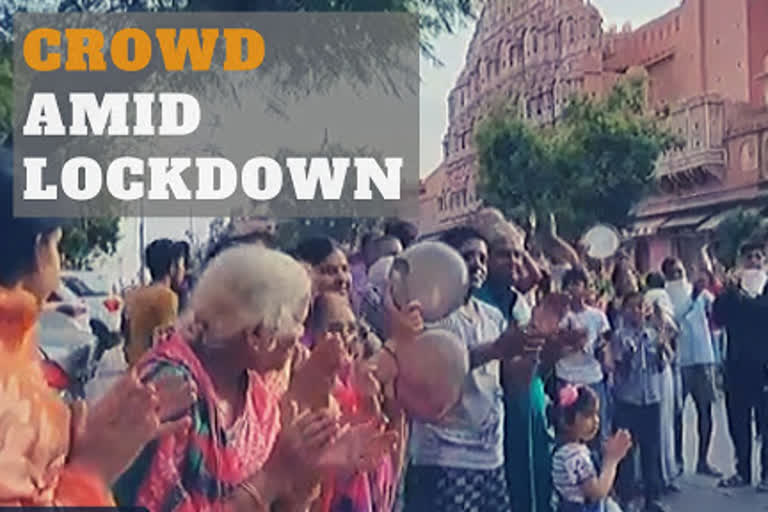Hyderabad: Until six weeks ago, South Korea handled the first few COVID-19 cases diligently. But everything changed with ‘Patient 31’. A woman dubbed ‘Case 31’ or ‘Patient 31’, had carelessly visited churches, hospitals and public places; spreading the infection to thousands of unassuming South Koreans. The government realized the instance of asymptomatic carriers and acted fast.
Similar to this, India has witnessed the spike in infections owing to Nizamuddin Markaz. From March 13 to 15, thousands of people from all corners of the country had participated in a massive religious ceremony held in the Nizamuddin area of New Delhi. Hundreds of foreigners were in attendance too.
The Telangana government has immediately alerted the Centre after an Indonesian group that attended the Nizamuddin’s Tablighi Jamaat was tested positive. The governments realised the connections of 6 COVID-19 deaths in Telangana, and several other positive cases in Andhra Pradesh to the Nizamuddin event.
The Chief Ministers in a video conference held with Prime Minister Modi yesterday confirmed to have traced the people who attended the Markaz. Unless the attendees’ contacts are traced, we cannot come to a clear conclusion about the number of positive cases. Conducting medical checkups, quarantining the infected and their contacts is a complex process that cannot be ignored.
The Kejriwal government had declared COVID-19 a ‘public health emergency’ on March 12 and banned large gatherings or crowds in Delhi. Initially, it advised that no more than 200 people could gather at a place but reduced the number to 50 in a day’s time. Then, how is it that the Tablighi Jamaat held a meeting with thousands of attendees.
After the Delhi Chief Minister ordered the police to file a case against Maulana Muhammad Saad, who convened a religious gathering at the cost of people’s lives; the Jamaat chief went into hiding. While the Delhi government is content with releasing directives and guidelines, the foreign-returned, especially from coronavirus affected Malaysia and Indonesia, are hiding their travel history. The Delhi government introduced a special visa system for international tourists from March 3. If the official machinery was alert when two foreign travellers to Delhi were tested positive and one in Coimbatore died; we could have averted a major threat.
At least after the Nizamuddin incident, the governments must be extra vigilant in dissipating crowds. Before the nationwide lockdown ends, there should be no more instances of gatherings. The exodus of migrant labourers is not just a threat to Uttar Pradesh and Bihar but to the entire nation.
The rate at which the novel coronavirus is spreading across the world is alarming.
The number of cases rose to 9.5 lakh while the virus claimed 50,000 lives worldwide.
The US, which initially underestimated the contagion, is now predicting 2.5 lakh deaths by the end of this pandemic. After the first 100 cases in Italy, the number exponentially rose to lakhs within a matter of weeks. Though the impact is lesser in India, incidents like Nizamuddin will fuel the peak of contagion. Following the Tablighi Jamaat, the Centre has identified 20 virus hotspots in the country.
Six states including Delhi, Maharashtra, Kerala and Rajasthan are witnessing the highest number of cases. The PM had asked the states to propose suitable exit strategies to be implemented following the lockdown. As a part of these strategies, it is possible to extend the lockdown for a few more weeks.
In the meantime, a foolproof action plan to trace and test people, quarantine the infected must be implemented. As the Supreme Court said, panic is a bigger problem than COVID-19. At any stage of fighting this latent enemy, carelessness on the part of government will put the entire nation at risk.



